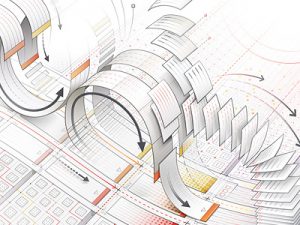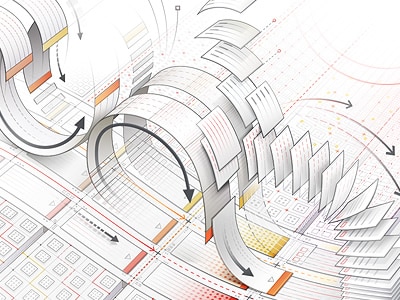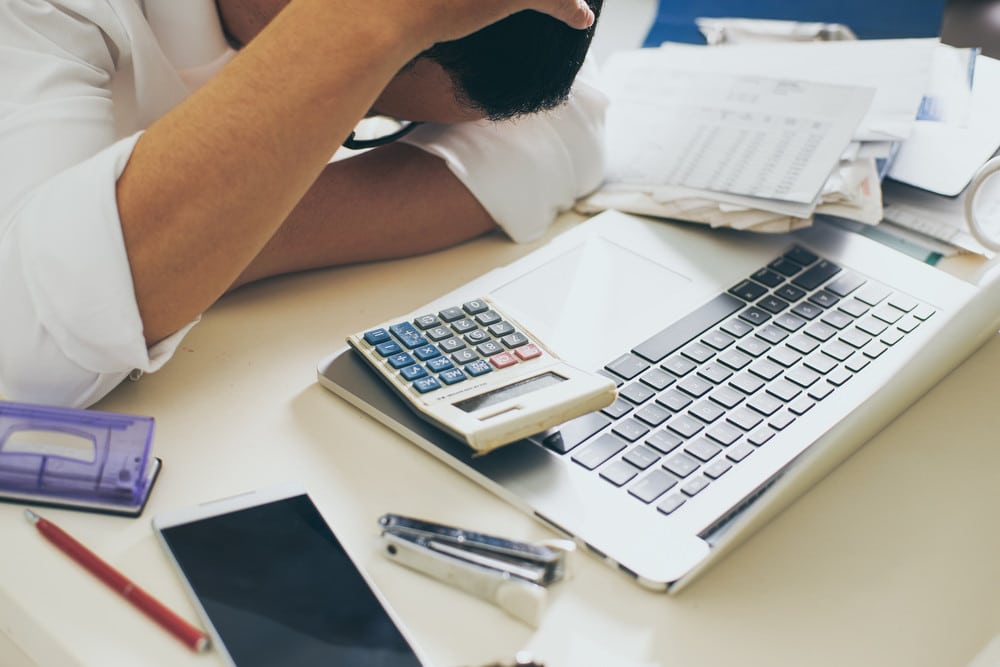 I don’t think people intentionally take on debts they can’t afford. People borrow with the best intentions but sometimes find themselves in a debt cycle of borrowing more than they can pay back. The debt cycle starts innocently but can quickly spiral out of control.
I don’t think people intentionally take on debts they can’t afford. People borrow with the best intentions but sometimes find themselves in a debt cycle of borrowing more than they can pay back. The debt cycle starts innocently but can quickly spiral out of control.
My Debt Cycle Story
My debt cycle started with my post-secondary education. Without getting into too many family details, it wasn’t discovered until high school that money I thought I would be receiving to help pay for my university was no longer available. There were funds set aside for my post-secondary that were essentially stolen from me. This left me in a tough spot. Though I received some scholarships it wasn’t enough. Borrowing was my only option.
I received absolutely no financial education in school. I knew nothing about borrowing, loans, or credit cards When I was approached on my campus to sign up for a shiny new credit card with a pretty picture, you better believe I signed on the dotted line and got one! My first credit card! Free money!!
Read John’s advice on Getting A Credit Card For the First Time.
By the time I finished my undergraduate degree I had accumulated almost $40,000 in school debt (lines of credit mostly) and a slew of credit cards with a total credit limit of over $20,000. Of the $20,000 available credit, I was carrying a balance of about $2000. The fact that I never once called and asked for a credit limit increase, was not even 21 years old, making minimum wage at a part-time job, while accumulating more debt while having access to $20,000 on credit cards, is worthy of another post. This cash access was the main culprit to my debt cycle.
View this insightful Infographic of Student Loan Debt.
I went on to do another degree, accumulating more debt. When I maxed out my eligibility for student loans and lines of credit, I decided to pay my tuition with my credit cards (something you’re no longer allowed to do in Canada). By the time I graduated university with my second degree, I owed almost $80,000. Great way to start my life.
I was entering a field with good job security and good pay. None of this mattered though since I had no idea what to do about stopping my debt cycle. I had no idea how to budget, how to manage my income, how to come up with a plan to pay off all my debt.
Rather than doing anything about my debt (other than paying the minimum requirements) I stuck my head in the sand so-to-speak and ignored it. I convinced myself that everyone had debt and that I used my debt for school therefore it was ‘’good debt’’. Boy was I wrong.
Though we accumulated no other consumer debts, my husband and I did buy a house and car, bringing our total debt load to over $300,000.
Ending My Debt Cycle
Our debt cycle ends with me becoming pregnant. As soon as we found out we would be expecting a baby we knew there was no more hiding from our debt. We had to face it head-on and come up with a plan. We, for the first time in ten years together had to have a real grown-up discussion about money. We didn’t want to have our debt burden our children. We both had a vision for our children and family life and debt was not a part of it.
We spoke to people and learned how to budget. Our budget still isn’t perfect but we have one that we work on, together. We have a plan and if all goes according to our plan, we will be (non-mortgage) debt-free within five years. Our debt cycle has an ending.
Ending a debt cycle starts with facing your debt and having a plan in place to pay it off. I wish I had figured my debt out earlier, but I have to be glad that we managed to actually do it at all. So many people live their lives like I was, in denial, forever.
What now? Read How to Pay Off Debt and Debt Consolidation: Ripoff or Real.
Have you ever found yourself in a debt cycle? How did you end it?
[Feature image credit http://dribbble.com/philippe-mignotte]










